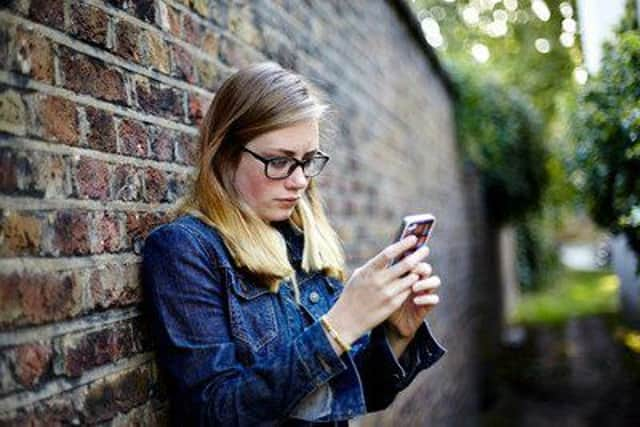Parents using technology access as part of '˜armoury of discipline'


Margaret said that many families did not realise that this could actually result in children becoming more unlikely to tell them, if something did happen online.
NSPCC research reveals that many parents often don’t feel confident discussing online safety because they don’t feel they have got the technical knowledge to do so.
Advertisement
Hide AdAdvertisement
Hide AdMargaret, who delivers workshops with parents in community and workplace settings, said that this was an issue that arose frequently.
“Most of what we talk about in our workshops is around having an open conversation with your children and being genuinely interested in what your child is doing online and actually respecting their life online,” she said.
“One of our key messages is that we tend to use it as a form of discipline now - ‘you’re not getting on the X Box’ or ‘I’m going to take that phone off you.’
“If the behaviour is related to the phone or X Box that’s one thing, but if it’s because they haven’t brought their uniform down to be washed, or they have been cheeky, then that’s another.
Advertisement
Hide AdAdvertisement
Hide Ad“If we are asking you to have a full conversation with your child on their online world - including the positives, but also reinforcing that they can come to you and seek help if something happens, what is appropriate? What is acceptable if you are not doing that and all you are saying is, ‘give me that phone’, or ‘I’m not paying your top-up,’ you are not going to have that conversation in a rounded sense.
“It becomes part of your armoury of discipline and for the child, you become nearly the enemy of it. And also, are they likely to come and tell you if they have done something wrong? Your child needs to know that if they have made a mistake, if they have done something online, that they can come and tell you, and while you may not approve of it or condone it, that you will help them sort it out.
“If somebody has got them into a position where they have sent an image inappropriately and is threatening them that if they don’t send more, even worse images or they’ll release it, do you want them to come to you? That is the worst case scenario for most parents,” claimed Margaret.
“Children are children, they take risks and children are very flattered by people who take an interest in them online. Equally, if your child has been involved in something such as bullying, it’s better if you are aware and can help towards resolve that.”
Advertisement
Hide AdAdvertisement
Hide AdMargaret said that people still tended to think of perpetrators as people who want to access a child through images and while this can be the case, there are also people their own age looking for images, bullying passed off as ‘banter.’
“If a child is unregulated and notreceiving good guidance within the home in a room, it could be a very different persona that child has online,” she said.
More information around the most popular Apps and sites used by children, safety features and possible risks, check out www.net-aware.org.uk